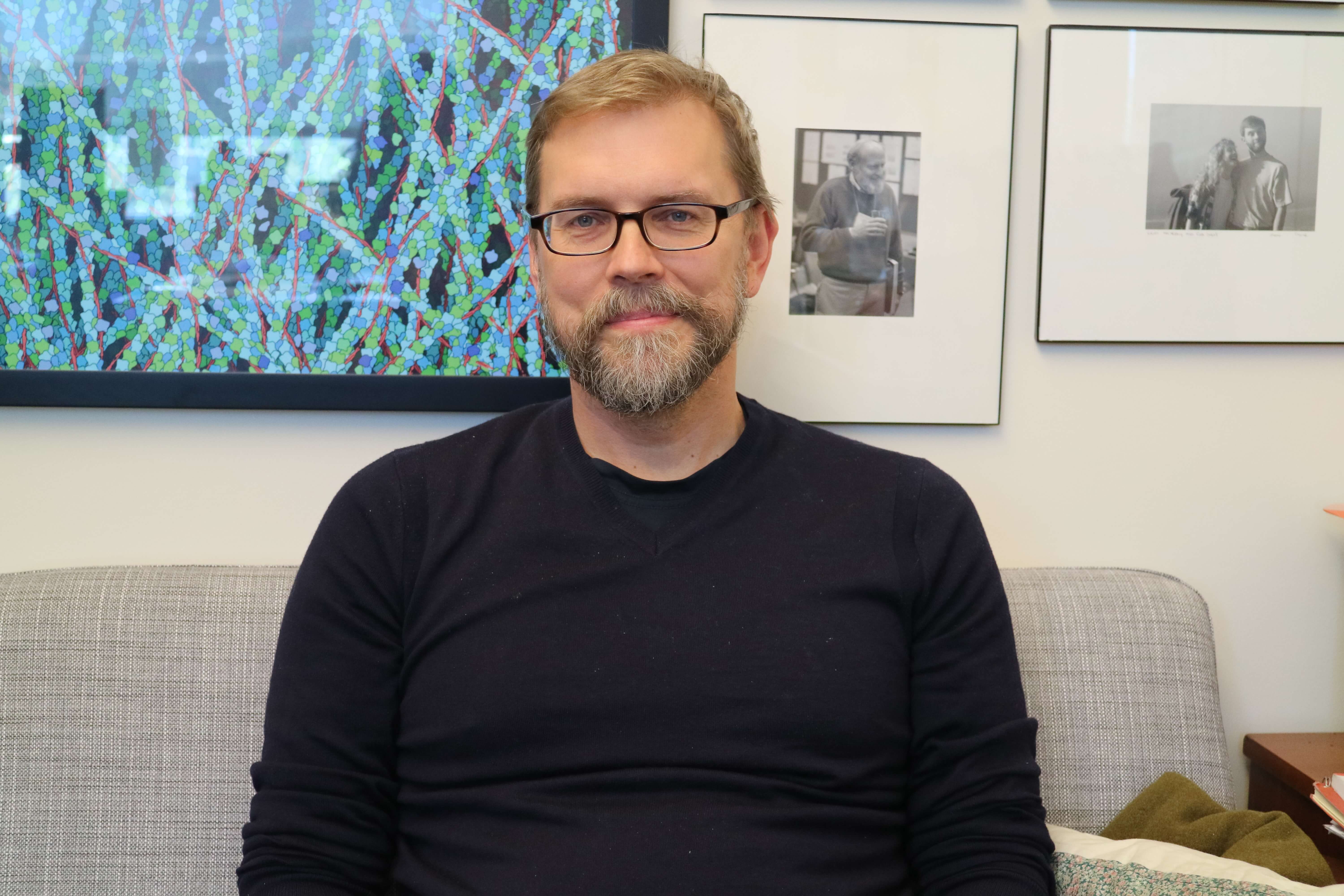
Q: In a couple sentences, what do you do in your work?
A: I am interested in fundamental problems in cell biology. I focus on how cells adopt a particular shape and how they move. More specifically, molecules can stick to each other and self assemble to build larger structures and build a skeleton. Those skeletons have polymers and protein molecules, and are what give cells their shape.
I am interested in this because it’s related to fundamental problems in human health, like cancer, developmental defects, birth defects and regeneration.
Q: What’s your favorite part about being a scientist?
A: The fact that it’s never the same job two days in a row. Some days I’m writing a paper, so it’s almost as if I’m a professional writer. Some days I’m trying to understand something quantitative or mathematical and I use some of my math training. Some days it’s tubing in the protein purification rig, so that’s like plumbing. Other days it’s talking to graduate students and PostDocs about the difficulties they’re having with their research, and that’s almost like psychology. So, I don’t get bored; it’s a different challenge every day.
Q: What have you created or discovered that you are most proud of?
A: People that have come through my lab, who are now in industry and academia...they are professors scattered around UCLA, Harvard, Stanford, University of Mississippi. I’m very proud of whatever small part I’ve played in that.
I’m also very proud of the fact that we discovered two of the three known ways that cells create new skeletal polymers.
Q: At the end of the day, why does your work matter?
A: It matters because my whole philosophy is that it boils down to two things. Don’t hurt anybody and try to understand things. The more we can understand, the better off we are. It’s better to know how the world around us works than not know. It’s better to understand the universe in a scientific way than it is to live in ignorance.
Q: Outside of work, what do you do to relax?
A: I’m a serious student of Russian poetry...I’ve published papers on it. My favorite Russian poet is Joseph Brodsky. I am also a fan of Vladimir Nabokov. I also love photography. I don’t have a lot of time to relax, although I have more than when I was PostDoc….But it’s not the world’s most relaxing job.
Q: What situation do you think you’d feel the most out-of-place in?
A: A creationist convention. I’d feel out of place because it’s an attempt to destroy science. Also: at a conspiracy theorist convention, a Trump rally, a posh Hollywood party, a Warrior’s game.
Q: In 100 years, what do you want to be remembered for?
A: As the father of a brilliant daughter (she’s 8 months old now), and for my scientific contributions and the people I influenced.